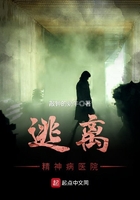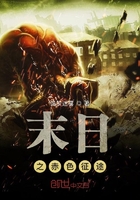Trafalgar Square And now again I was busy looking about me, for we were quite clear of Piccadilly Marketl, and were in a region of elegantly-built much ornamented houses, which I should have called villas if they had been ugly and pretentious, which was very far from being the case. Each house stood in a garden carefully cultivated and running over with flowers. The blackbirds were singing their best amidst the garden-trees, which, except for abay here and there, and occasional troups of limes, seemed to be all fruit-trees: there were a great many cherry-trees, now all laden with fruit; and several times as we passed by a garden we were offered baskets of fine fruit by children and young girls. Amidst all these gardens and houses it was of course impossible to trace the sites of the old streets: but it seemed to me that the main roadways were the same as of old.
We came presently into a large open space, sloping somewhat toward the south, the sunny site of which had been taken advantage of for planting an orchard, mainly, as I could see, of apricot trees, in the midst of which was a pretty gay little structure of wood, painted and gilded that looked like a refreshment-stall. From the southern side of the said orchard ran a long road chequered over with the shadow of tall old pear trees, at the end of which showed the high tower of the Parliament House, or Dung Market.
A strange sensation came over me; I shut my eyes to keep out the sight of the sun glittering on this fair abode of gardens, and for a moment there passed before them a phantasmagoria of another day. A great space surrounded by tall ugly houses, with an ugly church at the corner and a nondescript ugly cupolaed building at my back; the roadway thronged with a sweltering and excited crowd, dominated by omnibuses crowded with spectators. In the midst a paved be-fountained square, populated only by a few men dressed in blue and a good many singularly ugly bronze images (one on top of a tall column). The said square guarded up to the edge of the roadway by a four-fold line of big men clad in blue, and across the southern roadway the helmets of a band of horse-soldiers, dead white in the greyness of the chilly November afternoon--I opened my eyes to the sunlight again and looked round me, and cried out among the whispering trees and odorous blossoms, "Trafalgar Square!""Yes," said ****, who had drawn rein again, "so it is I don't wonder at your finding the name ridiculous: but after all, it was nobody's business to alter it, since the name of a dead folly doesn't bite. Yet sometimes I think we might have given it a name which would have commemorated the great battle which was fought on the spot itself in 1952,--_that_ was important enough, if the historians don't lie.""Which they generally do, or at least did," said the old man. "For instance what can you make of this, neighbours? I have read a muddled account in a book--O a stupid book!--called James' Social Democratic History, of a fight which took place here in or about the year 1887 (Iam bad at dates). Some people, says this story, were going to hold a ward-mote here, or some such thing, and the Government of London, or the Council, or the Commission, or what not other barbarous half-hatched body of fools, fell upon these citizens (as they were then called) with the armed hand. That seems too ridiculous to be true; but according to this version of the story, nothing much came of it which certainly _is_ too ridiculous to be true.""Well," quoth I, "but after all your Me. James is right so far, and it _is _ true; except that there was no fighting, merely unarmed and peaceable people attacked by ruffians armed with bludgeons.""And they put up with that?" said ****, with the first unpleasant expression I had seen on his good-tempered face.
Said I, reddening: "We _had_ to put up with it; we couldn't help it."The old man looked at me keenly, and said: "You seem to know a great deal about it, neighbour! And is it really true that nothing came of it?""This came of it," said I, "that a good many people were sent to prison because of it.""What, of the bludgeoners?" said the old man. "Poor devils!""No, no," said I, "of the bludgeoned."Said the old man rather severely: "Friend, I expect that you have been reading some rotten collection of lies, and have been taken in by it too easily.""I assure you," said I, "what I have been saying is true.""Well, well, I am sure you think so, neighbour," said the old man,"but I don't see why you should be so cocksure."As I couldn't explain why, I held my tongue. Meanwhile ****, who had been sitting with knit brows, cogitating, spoke at last, and said gently and rather sadly:















